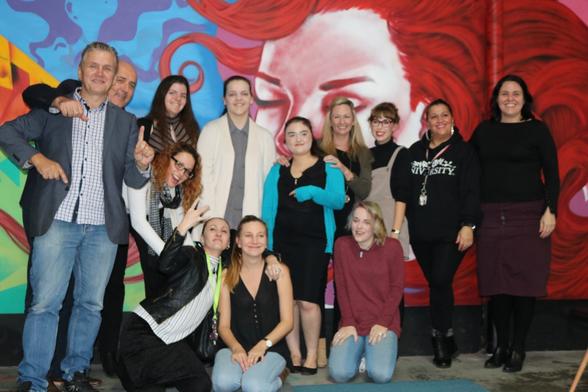Commissioner’s viewpoint
First impressions
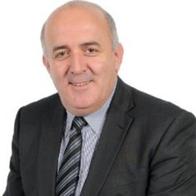
Two weeks into the Queensland Mental Health Commissioner role and I am overwhelmed by the level of commitment and motivation that has been expressed by service providers, people with a lived experience, their families and carers, and members of the broader community to continue driving mental health and drug and alcohol reform, and also to reduce the rates of suicide in our community.
I am particularly impressed by:
- Queensland Health’s work on implementing the Connecting Care to Recovery plan
- the work the Commission is progressing in the wellbeing space through the implementation of the Wheel of Wellbeing training (you can read more about this below)
- the feedback received through community consultations on the development of a revised Queensland Mental Health, Drug and Alcohol Strategic Plan 2017–2022.
I attended the two Logan consultation sessions and the youth consultation in Southport. I was particularly inspired by a young participant at Southport. This young lady had experienced a range of adverse life events which resulted in her developing severe mental health problems in her early teens. Now in her late teens she has stable accommodation, is managing her illness effectively, is participating in tertiary studies, and is able to reflect on her journey and articulate what was helpful and what did not work for her.
In summary, it was evident from her and other participants that the system is not broken, but it needs to continue to reform and change to better meet the needs of people living with mental illness and their carers and family. This young lady and her peers clearly identified what would have been more helpful for them and where the system needs improving. This includes:
- better service integration
- more flexibility in service responses
- continuity of service and relationships
- access to appropriate accommodation
- more community support services post discharge from inpatient care.
This in addition to other feedback will certainly help us reshape the Queensland Mental Health, Drug and Alcohol Strategic Plan 2014–2019 and set a direction for reform over the next five years.
Similarly I am impressed by the level of expertise and commitment displayed by staff in the Commission, which has made my transition into the role relatively smooth and will be an asset in supporting the next phase of reform in Queensland.
Finally I would like to thank you all for your kind wishes and I look forward to meeting and working with you all in the next phase of mental health and drug and alcohol reform in Queensland.
Ivan Frkovic
Queensland Mental Health Commissioner
System reform
Nine vital actions we must take following Royal Commission
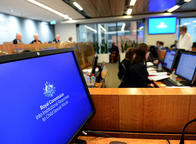
We partnered with Mental Health Commissions across Australia to ensure that mental health is on the agenda when the Royal Commission into Institutional Responses to Child Sexual Abuse makes its recommendations.
Our statement identifies nine essential elements to be addressed by state and federal governments in the wake of the Royal Commission:
- Recognise that childhood trauma is broader than institutional child abuse.
- Recognise the strength and resilience of survivors and use this, rather than an illness-based approach, to build positive outcomes.
- Build trauma capability across the full spectrum of services that recognises and responds to the specific needs of people managing the devastating impacts of abuse.
- Develop coordinated responses to the varied needs of consumers, including extended access to Medicare-funded counselling.
- Prepare for increased demand.
- Increase community-based support workers.
- Develop culturally appropriate services for Aboriginal people.
Read our joint media release
Spreading wellbeing throughout Queensland
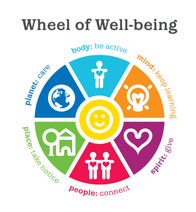
Queensland’s communities have an important role in improving mental health and wellbeing.
Good mental health and wellbeing not only helps protect against illness, but is also the foundation of flourishing individuals, families and communities.
In June 2017 we commenced implementation of Phase Three of the Capacity Building Project with Maudsley International. The project aims to enhance mental health and wellbeing awareness, knowledge and skills across the community, non-government and government sectors.
Phase Three delivers training in the Wheel of Wellbeing (WOW) framework, which focuses on the six key elements of individual mental health and wellbeing: Body, Mind, Spirit, People, Place and Planet.
In a world first, six participants commenced a train-the-trainer program to become accredited WOW Advanced Practitioners. This will enable them to deliver WOW Intensive training, provide mentoring and support to other WOW facilitators, and contribute to the promotion and development of WOW capacity across Queensland.
Furthermore, these Advanced Practitioner trainees have commenced delivering WOW Intensive training to 23 participants to help them become accredited to deliver WOW one day workshops, as well as incorporate the framework into their personal context, their work, their community and to contribute to cross-sectoral capacity building.
Training to strengthen supported decision-making
Supported decision-making enables people to exercise their full legal and human rights by assisting them to make informed decisions about issues such as their health, finances, housing and lifestyle choices.
With support some people can be fully involved in all parts of a decision.
We support a large research project aimed at strengthening decision-making support for people with a cognitive disability. The research is being conducted in Queensland, New South Wales and Victoria and is led by La Trobe University. It is a collaboration between a number of universities, government and non-government agencies and industry partners.
As part of the project, an education program and support package has been developed for people who provide support to people with cognitive disability to make decisions. The Queensland University of Technology is looking for Queenslanders with intellectual impairment or acquired brain injury to participate in this training program to help test its effectiveness. If you would like to participate, or know someone who would, please contact Dr Cindy Nicollet via email at decision.making@qut.edu.au or by phone on 3138 4237.
Read more about the supported decision-making research project
Grants program closed
Stronger Community Mental Health and Wellbeing
Our Stronger Community Mental Health and Wellbeing Grants Program has closed. Good luck to those who submitted an application.
Applications received before the closing date and which meet the eligibility criteria are now being assessed.
Applicants will be advised in writing by 18 September 2017 whether they have been successful. We will announce successful applicants in Queensland Mental Health Week (8-14 October).
Renewing Queensland’s Strategic Plan
Thanks for sharing
On 30 June we held the last of 16 public consultation forums to renew the Queensland Mental Health, Drug and Alcohol Strategic Plan 2014–2019.
More than 250 people from across Queensland shared their views and experiences at forums in Rockhampton, Mount Isa, Ipswich, Brisbane, Townsville, Cairns, Toowoomba and Logan. These included people with a lived experience of mental illness, problematic alcohol and other drug use and suicide, their families, carers and support people, and representatives from government and non-government services providers.
Thank you to all who participated. We appreciate the candid and often very personal information provided.
We also thank the government, non-government and individual submissions made in response to the two discussion papers released in February 2017.
A summary of what we heard will be released soon.
Advisory Council
June meeting
The Council’s June meeting communique is now available on our website. Discussion included:
- Renewing the Strategic Plan
- Fetal Alcohol Spectrum Disorders (FASD)
- Human rights research
- Reducing stigma and discrimination for people experiencing problematic alcohol and other drug use
- Queensland’s role in representing the mental health sector and providing advice to the National Disability Insurance Agency
- Emerging risks to Queensland reforms.
Download the meeting communique
Lived experience
Engage and participate in mental health
You are invited to share your knowledge and experience in the National Mental Health Commission’s Engage and Participate in Mental Health project.
The project aims to better understand and develop a national view of consumer and carer engagement and participation in mental health and hear examples of initiatives that reflect leading and contemporary practice. This will inform future policy, practice and research priorities.
Be involved:
- Provide your lived experience ideas
- Hold a community conversation
- Participate in yarn ups
- Complete the online survey
- Participate in a web consult.
For more information go to Engage and Participate in Mental Health
Be the voice of lived experience in healthcare
Expressions of Interest are open to join the Queensland Health Consumers Collaborative.
The strategic, high level Collaborative informs embedding consumer partnerships at every level of planning, policy, delivery, monitoring and evaluation of services provided by Hospital and Health Services and the Department of Health. It is a joint initiative between Queensland Health and Health Consumers Queensland.
Applicants must be an active consumer or carer representative or advisory committee member within a Queensland Hospital and Health Service or at a state-wide level within the Department of Health.
Nominations close on Monday 31 July.
Download the EOI form
Suicide prevention
Take a minute, change a life
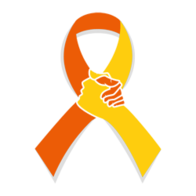
Take a Minute, Change a Life is the theme of 2017 World Suicide Prevention Day (10 September).
These words encourage us all to take time to notice what’s going on with our friends, family and colleagues and take time to have those conversations which could change (or save) a life.
Conversations Matter provide a range of practical resources relevant for individuals, families, community groups, workplaces and educational settings on discussing suicide.
Make an impact on WSPD by holding an event. Download our WSPD awareness event host guide to help you plan a safe and successful event.
Don’t forget to register your event at wspd.org.au
Chats for life
Having a conversation with someone you might be worried about can have a profound impact on their mental health and wellbeing.
For many young people, knowing how to start a conversation with a family member or friend showing the early warning signs of suicide can be a difficult first step to take.
To help young people prepare for these conversations, we funded ConNetica and the University of the Sunshine Coast to develop the Chats for life early suicide prevention app. The app will be available for download later this week.
Watch this short video to learn more about the app.
Alcohol and other drugs
Explore the Crossroads
The 30th Australian Winter School Conference is just around the corner. With an exciting program full of leading local and international alcohol and other drug experts, professionals and specialists, you won’t want to miss out.
Some highlights:
- Dr Marc Lewis – Connecting development, biology, and choice in our understanding of addiction.
- Professor Alison Ritter – Reducing the stigma and discrimination experienced by people with problematic alcohol and other drug use in Queensland.
- Professor Peter Adams – Integration or Assimilation: How well do alcohol and other drug services fare when governed by mental health?
- Dr Monica Barratt – Community outreach services that analyse illicit drugs for content and purity (aka pill testing): Preparation for an Australian trial.
Don’t miss our Executive Director, Carmel Ybarlucea, discussing service integration in her presentation One client, many stories.
View the program and register at winterschool.org.au
Watch and learn
Build on your alcohol and other drug knowledge and skills with the Insight seminar series recordings now available on YouTube.
Insight is a provider of AOD training, education, information and advice for workers and services across Queensland. Their seminars have been described as interesting and relevant.
Some recent seminars you can watch include:
- A little less conversation, a little more action – Michelle Taylor on ‘Sensory Approaches’ to practice
- Psychedelic science – Dr Nikola Ognyenovits provides an insight into the world of psychedelic science
- Elephants in the room – Dr Jeremy Hayllar explores some potentially forgotten elephants in the alcohol and drug consultation room
- Neuroscience and motivation within mental health and alcohol and drug contexts – Dr Frances Dark discusses motivation in people who experience substance use disorders and schizophrenia and the application to treatment.
Go to the YouTube channel
Community
100 ways to #ValueMentalHealth
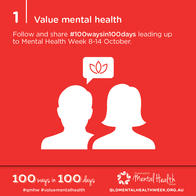
The 100 ways in 100 days social media campaign has officially kicked off the countdown to Queensland Mental Health Week (8-14 October).
The 100-day countdown provides daily tips for Queenslanders to value their mental health and improve wellbeing.
You can spark real-world connections and conversations — print out the daily messages to display in your staff room, meeting room, classroom, kitchen, community centre... anywhere that matters.
Follow and join
- On Facebook – Queensland Mental Health Week
- On Twitter – @MHWeek
- On Instagram – qldmentalhealthweek
Get involved
Go to qldmentalhealthweek.org.au for information on events, resources, and opportunities to get involved.
A small gesture for a very big cause

On one very mild winter’s night in June, 166 Chief Executives and senior officers from private enterprise and government and non-government organisations gathered at the foot of the Story Bridge to participate in the annual Vinnies CEO Sleepout.
One of them was our Executive Director, Carmel Ybarlucea. This is her account of the evening:
Many of us have never experienced homelessness. Some of us directly or indirectly work to reduce homelessness, provide housing and improve the mental health and wellbeing of around 150,000 Australians who through life circumstances find themselves sleeping rough or couch surfing.
Unlike those we were seeking to help, we were fortunate. We had clean cardboard to sleep on, a sleeping bag, clean clothes, food, and a place to go home to. Most importantly, we were safe and had our health and our mental health.
To remind us that recovery is possible but can be hard, we heard from two women who found themselves in dire straits but came out the other end with the support of a wide range of services.
At 6am when I was making my way home, I was thinking how very small this gesture, of sleeping under the bridge for one night, was. But how worthwhile. Nationally with the support of over 38,600 supporters, we raised $5.6 million which will purchase homes and provide meals and other life essentials that many of us take for granted. Thank you to those who generously donated. Without your support we could not make a difference.
Registrations have now opened for the 2018 CEO Sleepout. Hope to see you there!
Sector News
NDIS governance and risk management training
Two new courses to help providers meet the challenge of governing and managing risk in the new NDIS environment have been developed by the Governance Institute of Australia and the Queensland Alliance for Mental Health.
NDIS Governance Essentials and NDIS Risk Management Essentials are targeted at Board Directors, Company Secretaries and Executives to assist with managing NDIS transition.
Register your interest to stay up-to-date on the new courses being offered in Brisbane on 22 August and further dates around the country.
Of interest – Our Commissioner now represents Australia’s state and national mental health commissions on the NDIA Mental Health Sector Reference Group. The group provides advice to the NDIA about the integration of psychosocial disability and mental health into the NDIS.
Grants
- Bennelong Foundation – To help guide the distribution of grants, the Foundation has identified seven key areas of focus. Out of these, the current priority focus areas are: education, training and employment, community health, and migrant and Indigenous community welfare. More information
- HESTA Community Sector Awards 2017 – The HESTA Community Sector Awards recognise outstanding service provision, advocacy and leadership in improving the lives of people who rely on access to the services of this sector. Overall winners will share in a $30,000 prize pool. Read more
- June Canavan Foundation – Grants available to organisations to support driving sustainable change through programs in sport, education, health and conservation. Find out more
- Social Investment Grants – Not-for-profits are invited to apply for grants up to $50,000. This year’s grants are aimed at building resilience and capability for people who are experiencing homelessness or domestic and family violence. Apply here
- The Honda Foundation – Financial assistance for charities and organisations doing amazing work across a range of social and environmental issues. Read more
- We are Queensland grants program – Grants to support Queenslanders to be more involved in their communities and encourage a society where everyone is respected and welcome to make a positive and valued contribution to the community. Applications close 11 August. Find out more
- Moreton Bay Regional Council Community Grants Program – Through the Grants Program the Council recognises leadership and individual achievement, and develops and actively supports community organisations and individuals to positively contribute to community wellbeing and the cultural life of the region. More information
- Gambling Community Benefit Fund – Not-for-profit groups operating in Queensland can apply for grants from $500-$35,000 through Round 94 of the GCBF. Applications close 31 August. Apply for funding
Resources
- Alcohol and other drugs national policy timeline – The Australian Indigenous Alcohol and Other Drugs Knowledge Centre have released an AOD policy timeline to help inform and educate the sector. The timeline provides an interactive way to learn about the history of AOD policies in Australia. Go to the AOD policy timeline
- Alcohol and other drug treatment services in Australia – The Australian Institute of Health and Welfare reports on AOD treatment services during 2015–16. Read the media release
- Review of Queensland’s youth detention centres – The State Government have publicly released the report from the independent review into Queensland’s youth detention centres and their response. It includes a number of recommendations related to mental health and suicide prevention, including greater collaboration between Youth Justice and Queensland Health and more specialised, ongoing mental health training for youth detention staff. Download the reports on the review website
- Suicide among serving and ex-serving Australian Defence Force personnel – A new Australian Institute of Health and Welfare report on suicide among serving and ex-serving Australian Defence Force personnel identifies certain military-related characteristics that may put ex-serving men at greater risk. Read the media release
Events
- 26-29 July 2017 National Suicide Prevention Conference – The theme Relationships, resilience and respect: Responding to vulnerability in life will bring to the fore these thematic issues in suicide prevention and how they may help or hinder implementation of initiatives at the community level. Register on the conference website
- 27-28 July 2017 Australian Winter School Conference – Explore the complex intersection alcohol and other drugs have with other sectors with the themes of Collaborate, Coordinate and Integrate at the 2017 AWS Conference. More information at winterschool.org.au
- 3-4 August 2017 Just Ice Symposium – Explore the facts (and perhaps bust some myths) about crystal methamphetamine use, its impact on children and families and promising treatment approaches. Find out more
- 10-12 August 2017 Voices in Action Conference – CREATE’s third Conference Voices in Action: empowering young people for positive change is about creating positive change to improve the lives of children and young people in care. Read more
- 18 August 2017 Consumer training: The fundamentals of partnering with consumers – This HCQ training provides an overview of the fundamentals of consumer partnerships so health consumers and staff have a shared understanding of the principles of effective partnerships. Register to attend
- 21-23 August 2017 18th International Mental Health Conference – Featuring Australia and New Zealand’s leading practitioners, academics, researchers, mental health experts, NGO’s and policy makers, the conference will motivate and inspire professionals (and future professionals). Register
- 8 September 2017 CheckUP Forum – This year’s forum follows an exciting new format, focusing on three approaches to creating healthier communities: Working together, Working smarter, and Working better. Register or view the draft program
- 8-9 September 2017 PTS2017 Conference – An international forum to explore and share knowledge and advancements in treatment for Post Traumatic Stress. Read more
- 4-6 October 2017 Global Alcohol Policy Conference 2017 – Melbourne. Join the world’s alcohol policy makers and researchers at this 3-day conference. This conference’s theme is Mobilising for Change – Alcohol policy and the evidence for action. Early bird registrations close 30 June 2017. Go to the conference website
- 16 November 2017 National NDIS Mental Health Conference – Organised with support from the National Disability Insurance Agency (NDIA), the conference will bring Australia's mental health sector together to discuss the impact of the NDIS, learn about case studies where the NDIS has already been rolled out and plan for the future. Go to the conference website
Other
- Health Consumers Queensland Board Membership – Health Consumers Queensland is seeking Expressions of Interest from individuals to join their Board of Directors. The Board is drawn from consumer networks and meet regularly to provide strategic direction and oversight of Health Consumers Queensland’s work. Members have a broad range of skills including lived experiences as health consumers. Download the Board info sheet and EOI form
- Community Services Workforce Census – Take part in Health and Community Services Workforce Council’s first Community Services Workforce Census.
- Hear Me, See Me Art Exhibition – The Queensland Family and Child Commission has launched the inaugural 2017 Hear Me, See Me Art Exhibition, encouraging Queensland children aged 5-18 years to share their voices and vision about the kind of world they want to live in. Young artists are invited to submit a piece of original artwork on the theme What does safety, love, joy, hope, trust and family look like to you? Read more
